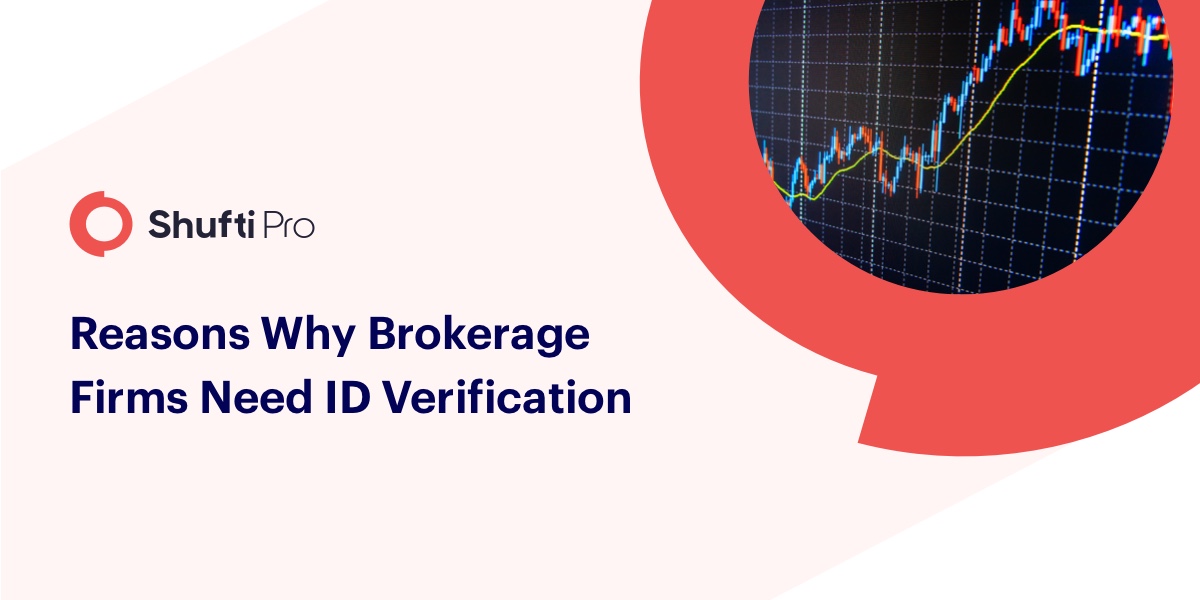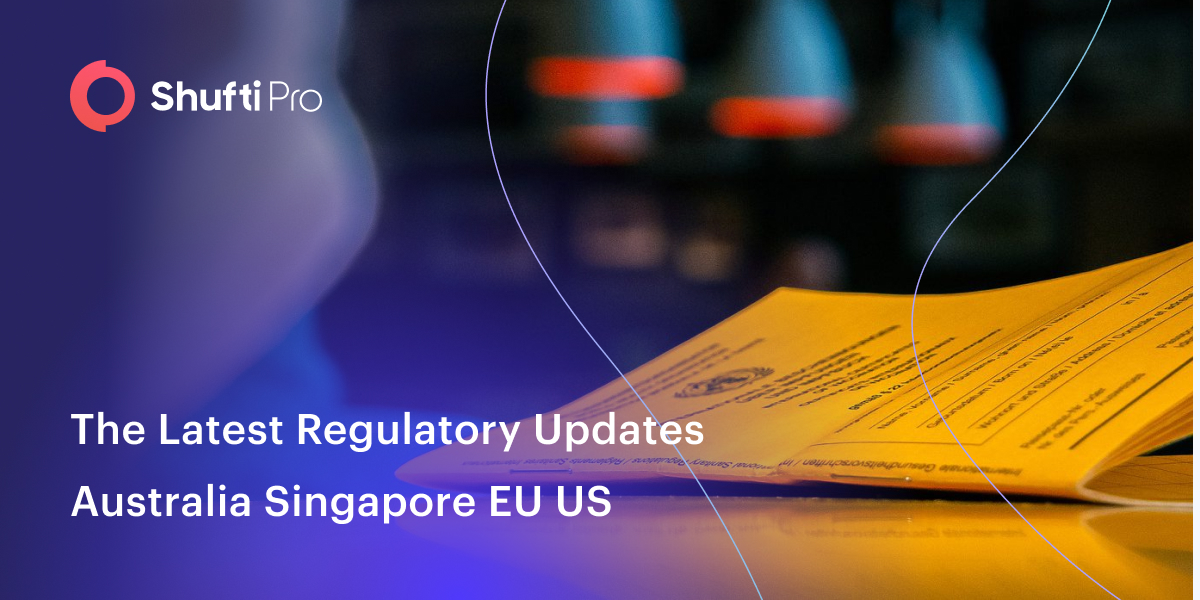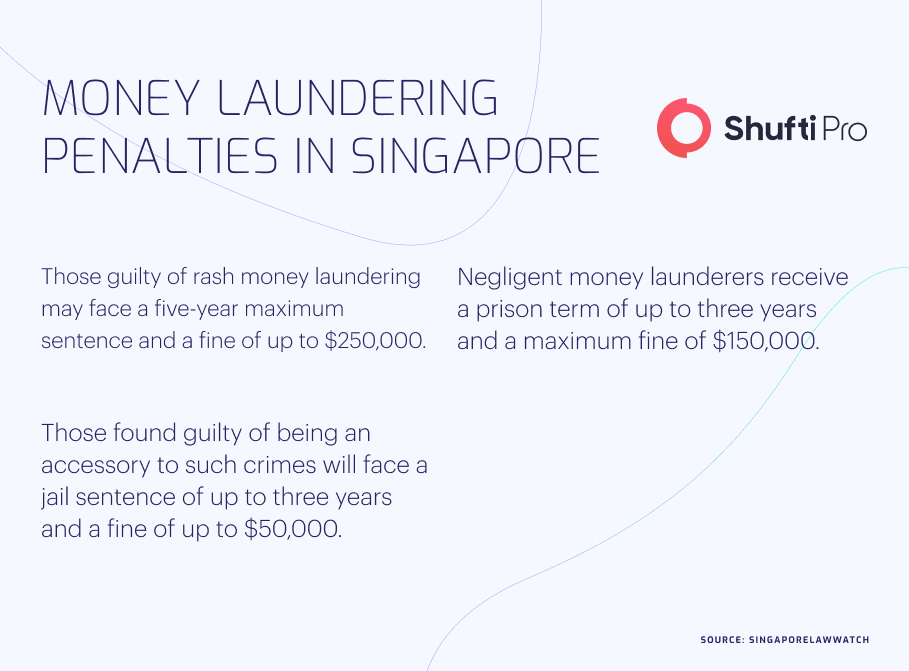Blog, Identity & KYC, Online Marketplace
Why 2 Factor Authentication is vital for Online Identity Risk Management?
Online identity risk management is becoming harder and harder on cyberspace. It is a headache for...
 Explore More
Explore More
Blog
Shufti Marks 4 Years of Streamlining KYC and AML for Global Businesses
October 2021 marks four complete years since the launch of Shufti. As years begin to stack, t...
 Explore More
Explore More
Blog, Online Marketplace
Know Your Customer Verification for Charity Organisations
They say no good deed goes unpunished, if we were to take a look at it literally the frauds that ...
 Explore More
Explore More
Blog
e-IDV: Safeguarding Businesses and Customers in the Digital Age
Identity theft cases are on the rise in this age of digitisation. In 2022, India topped the list ...
 Explore More
Explore More
Blog
How Artificial Intelligence is taking ID verification to the next level?
Identity theft is deemed as a growing problem. Particularly with the increase in online shopping,...
 Explore More
Explore More
Blog
Talent Acquisition Fraud – Hiring Legitimate Candidates with Identity Verification
Along with the rise in virtual and remote work, the number of cases of recruitment fraud is incre...
 Explore More
Explore More
Blog
Biometrics Bucking the Trend of KYP in Healthcare
Over the last few years, biometric technology is deeply entrenched in various commercial marketpl...
 Explore More
Explore More
Blog, Financial Crime / AML, Identity & KYC, Reg Tech
Significance of AML Compliance in Money Services Business
The financial sector landscape is evolving with the advent of the FinTech industry. Many revoluti...
 Explore More
Explore More
Blog
Elevating Payment Security: The Crucial Role of Biometric Authentication
There has been a considerable rise in digital payment methods in recent years. People now prefer ...
 Explore More
Explore More
Blog
Digital Currency – Replacing Fiat Money in the Modern World
Technological advancements are leading to better transaction systems in different states. Cryptoc...
 Explore More
Explore More
Blog
DSAR Under GDPR and CCPA – Understanding the Key Differences
Data protection is one of the key concerns of organisations these days. For the same reason, data...
 Explore More
Explore More
Blog
KJM Age Restrictions Breaking New Grounds for Gaming Industry
Minor protection has become a challenge for everyone these days. Parents are worried about the ty...
 Explore More
Explore More
Blog
ID Document Fraud | Is Your Business Prepared to Fight the War Against Fraud in 2024?
In today’s data-driven, digitized world, various business processes have been automated...
 Explore More
Explore More
Blog, Fraud Prevention
Data Breaches in 2019 – A Year in Review
Stepping into 2020, the year 2019 has been on the rollercoaster in terms of security breaches. Da...
 Explore More
Explore More
Blog
Anti-Money Laundering Screening – Enabling Financial Institutions to Handle Suspicious Activities
Financial crime is becoming a global concern, yet it’s often tough to spot. That is why gov...
 Explore More
Explore More
Blog
The Emerging Threat of DeepFakes and the Role of Video KYC
With technological advancement, cybercriminals are revising their strategies to commit fraud. Cri...
 Explore More
Explore More
Blog, Online Marketplace
How API-based Technologies Can Transform the Future of Online Marketplace
API Based Technologies: Application Programming Interfaces (APIs) are giving advanced ways of dig...
 Explore More
Explore More
Blog
The Expected No-Deal Brexit and AML/CFT Laws in the UK
The current prime minister of the UK Mr. Boris Johnson made a statement that the UK should be rea...
 Explore More
Explore More
Blog
UAE Government Stepping Up Against Prevalent Crimes
The UAE is known for being home to flourishing businesses and providing a significant level of fi...
 Explore More
Explore More
Blog
How Businesses Can Avoid Identity Verification Fraud in 2019?
With a bulk of customers using online services, businesses wish to digitise their operations and ...
 Explore More
Explore More
Blog
SEPA Instant Credit Transfer Schemes – Disrupting the Financial Sector in 2023
There is no denying the fact that the financial industry has vital importance in the contemporary...
 Explore More
Explore More
Blog
Evolving Regulations Shaping Digital Crypto Ecosystem – How Shufti Can Help
Since the start of civilization, humans have used money in several different ways, and throughout...
 Explore More
Explore More
Anti Money Laundering, Blog, Business Technology, Financial Crime / AML, Identity & KYC
Global Economies are joining forces with FATF against money laundering
Financial Action Task Force (FATF) has been very keen on eliminating financial crime (money laund...
 Explore More
Explore More
Blog
EU’s Smart ID Wallet – Paving the Way for a Seamless Digital World
A few days back, the European Union Commission published a draft for digital ID wallets for all t...
 Explore More
Explore More
Blog
HKMA’s Risk Assessment Guidelines for AML/CFT Compliance in the Banking Sector
In the past few years, global regulatory authorities have been laying new grounds for Anti-Money ...
 Explore More
Explore More
Blog
Age Verification – Ensuring the Protection of Minors on Digital Platforms
In today’s technologically advanced era, digital products and services have transformed the way s...
 Explore More
Explore More
Blog
E-learning Platforms and IDV Solutions: A Natural And Much Needed Partnership
The advancement of modern technologies and telecommunication modes has made online assistance ava...
 Explore More
Explore More
Blog, Business Technology
What Due Diligence Means for Your Business
Due diligence is a process that helps banks and individuals to get to know in detail who they are...
 Explore More
Explore More
Blog
Disruptive Fintech Trends 2020
Fintech has changed the way consumers access their finances. From mobile payment apps to insuranc...
 Explore More
Explore More
Blog
The UK, US & Singapore – A Spotlight on the Crypto Regulations
Non-compliance with anti-money laundering regulations has been an issue for the finance and crypt...
 Explore More
Explore More
Blog
AML Screening | Fighting the War Against Terrorist Financing & Money Laundering
Money laundering and terrorist financing have become a global concern. In the US alone, approxima...
 Explore More
Explore More
Blog, Online Marketplace
The Importance of Know Your Customer for Crowd Funding and ID Verification Service
In today’s world where most business and financial transactions are taking place online, the impo...
 Explore More
Explore More
Blog
Understanding Facial Identification: Face Verification vs. Face Recognition
Many terms in the biometrics field are used interchangeably, particularly regarding facial verifi...
 Explore More
Explore More
Blog
Expanding and Securing Financial Services with Shufti’s Video KYC Solution
In recent years, Know Your Customer (KYC) has gone through significant digital transformations. B...
 Explore More
Explore More
Blog
Impact of Beneficial Ownership Transparency on Real Estate Crimes
The high price tags of real estate in the US open doors for corrupt politicians, kleptocrats, and...
 Explore More
Explore More
Blog
Identity Verification Isn’t Just for Compliance Anymore
Identity verification solutions are well-known in regulatory compliance environments, particularl...
 Explore More
Explore More
Blog, Identity & KYC
4 Reasons Why Brokerage Firms Need ID Verification?
According to Steve Grobman, Chief Technology Officer for McAfee, “The digital world has transform...
 Explore More
Explore More
Blog
Top 5 Challenges in Online Identity Verification
The online ecosystem of identity management is more dynamic than ever before. It’s a flexible and...
 Explore More
Explore More
Blog
A Brief Insight into Crypto Regulations in the Asia-Pacific Region
The Asia-Pacific region is one of the areas with the highest rate of crypto adoption. Considering...
 Explore More
Explore More
Blog
AUSTRAC’s ML/TF Risk Assessment 2021 – Other Domestic Banks Report [Part 2]
Australia is an important member of the Financial Action Task Force and plays a substantial role ...
![AUSTRAC’s ML/TF Risk Assessment 2021 – Other Domestic Banks Report [Part 2] AUSTRAC’s ML/TF Risk Assessment 2021 – Other Domestic Banks Report [Part 2]](https://shuftipro.com/wp-content/uploads/2021-09-08-blog.jpeg) Explore More
Explore More
Blog
Need for Identity Verification in Real Estate and Its Real-World Use Cases
The real estate industry is in dire need of identity verification processes. The reason being, th...
 Explore More
Explore More
Blog
Merchant Onboarding – Evaluating the Best Practices to Onboard Risk-free Partners
Partnering with the right people who can actually help your business grow is quite a tedious task...
 Explore More
Explore More
Blog, Financial Crime / AML
Impact of Regulatory Scrutiny & AML Compliance in Real Estate
Anti Money Laundering (AML): Criminals around the globe are targeting real estate to launder the ...
 Explore More
Explore More
Blog
AML Solutions: Eliminating the Risks of Money Laundering
Money laundering is a serious crime that can have serious and long-term consequences for your bus...
 Explore More
Explore More
Blog
Know Your Donor (KYD) – Customer Due Diligence For Charities and NPOs
According to DoubleTheDonation, 45% of worldwide donors are enrolled in monthly donation programs...
 Explore More
Explore More
Blog, Identity & KYC
Biometric Identification is On the Rise in Education Sector
An acceptable method of identification i.e. biometric technology is hitting the education industr...
 Explore More
Explore More
Blog
Shufti’s AML Screening Solution – How to Comply with Germany’s AML Regulations
The stability of the global economy is at risk pertaining to the rapidly growing issues of money ...
 Explore More
Explore More
Blog, Online Marketplace
e-KYC Services for Libraries
Have you ever had those series of events that leave you shaking your head? That makes you believe...
 Explore More
Explore More
Blog
Analyzing the UK and US Gambling Industry by Numbers
Businesses and people in the gambling sector are aware of the risks involved and what are their p...
 Explore More
Explore More
Blog
Combatting Identity Theft with KYC Verification – A Risk-Based Approach in Online Shopping
The proliferation of online stores has radically transformed how people shop and greatly affected...
 Explore More
Explore More
Blog
Anti-Money Laundering (AML) Solutions – Ensuring Responsible Gambling and Data Protection
Like other industries, the gambling industry is also becoming a prime target of criminals. Howeve...
 Explore More
Explore More
Blog
Biometrics identity verification system – a masterstroke in verification market
The biometrics identity verification system determines the resemblance of an individual by compar...
 Explore More
Explore More
Blog
Enhancing the Effectiveness of KYC Checks with Shufti’s Forensic Document Verification
With emerging technologies and rapid digitization, identity fraud has become quite common, raisin...
 Explore More
Explore More
Blog
Six Ways to Protect Your Business from Christmas Scams
Christmas is around the corner and all of you must be very excited to decorate christmas trees, e...
 Explore More
Explore More
Blog
Panama Moves Forward With New Crypto Bill – A Step Towards Legalizing Digital Assets
Cryptocurrencies have been around for a decade now. As new technologies are emerging, criminals a...
 Explore More
Explore More
Blog
Shufti Beyond Borders – Customer Experience That Drives Results
About Stanton Brooks
Stanton Brooks is a global customer experience (CX) leader specializing in d...
 Explore More
Explore More
Blog
Two-Factor Authentication – A Firewall Against Social Engineering Attacks
Businesses and financial institutions around the globe often report concerns of financial crimes ...
 Explore More
Explore More
Blog
Anti-Money Laundering (AML) Screening | Combat Online Gambling Scams Effectively
Online gambling has seen significant adoption in the past few years because of the convenience, v...
 Explore More
Explore More
Blog
e-IDV: Improving Client Onboarding for Banks and FinTech
Individuals and business owners often face significant time constraints when visiting banks physi...
 Explore More
Explore More
Blog, Online Marketplace
Benefits of KYC services for Money Services Operators
Money service operators are at the forefront of international financial system as they help with ...
 Explore More
Explore More
Blog, Identity & KYC
Know Your Patient: Anti-Fraud Pill for Healthcare Industry
Know Your Patient: The healthcare industry is more prone to data breaches than any other industry...
 Explore More
Explore More
Blog
Metaverse and Meta Criminals – Is it Possible to Secure Identities with IDV?
Ever since Mark Zuckerberg changed Facebook’s name to Meta, the acronym “metaverse” has taken ove...
 Explore More
Explore More
Biometric Technology, Blog
Warning: You’re Losing Money by not Using Biometric Identification
On the surface, Biometric Identification might seem as if it’s only useful for opening your bank ...
 Explore More
Explore More
Blog
Shufti Turns Three – A journey of building trust globally
October 31, 2020, marks the third anniversary of Shufti and three successful years of buildin...
 Explore More
Explore More
Blog
Blockchain Technology and KYC for Crypto Exchanges – How Shufti Can Help
KYC compliance is the backbone of the Anti-Money Laundering (AML) measures implemented by any fin...
 Explore More
Explore More
Blog
Analyzing and Balancing the Variables of an Effective Identity Verification Solution
Today’s constantly transforming digital landscape where technology empowers businesses fast-paced...
 Explore More
Explore More
Blog, Financial Crime / AML
Secure Crypto Wallets with e-KYC & AML Screening
Payment and funds’ transfer has taken a more digital turn in recent years, with the onset of Cryp...
 Explore More
Explore More
Blog
E-Signature | Digitise and Verify Agreements in Compliance
The use of electronic signature, or e-signature, has transformed business dealings. The days of s...
 Explore More
Explore More
Blog
5 AML Compliance Trends for 2023 – New Regulations and Technological Advancements
From digital payments to new regulations on preventing fraud and FINRA’s guidelines on penalising...
 Explore More
Explore More
Blog
Six Ways to Protect Your Business from Christmas Scams
Christmas is around the corner and all of you must be very excited to decorate christmas trees, e...
 Explore More
Explore More
Blog
The Role of Digital Identity in Business-Customer Relationship
Dealing with any business online have you ever wondered where this relationship would go? We all ...
 Explore More
Explore More
Blog
Know Your Donor (KYD) – Eradicating Financial Crimes in NPOs and Charity Organizations
In 2020, US citizens alone donated more than $471 billion to charities. This generosity ultimatel...
 Explore More
Explore More













































![AUSTRAC’s ML/TF Risk Assessment 2021 – Other Domestic Banks Report [Part 2] AUSTRAC’s ML/TF Risk Assessment 2021 – Other Domestic Banks Report [Part 2]](https://shuftipro.com/wp-content/uploads/2021-09-08-blog.jpeg)






























